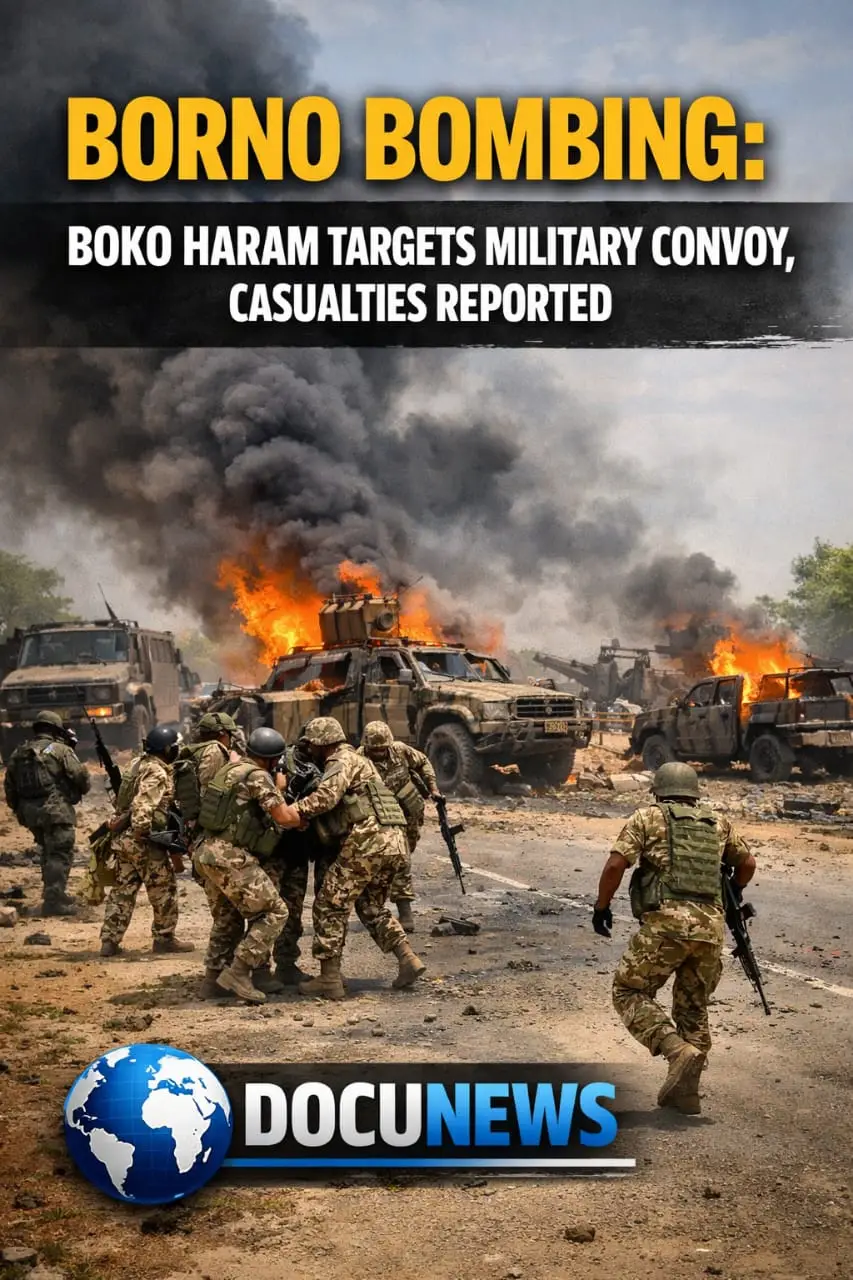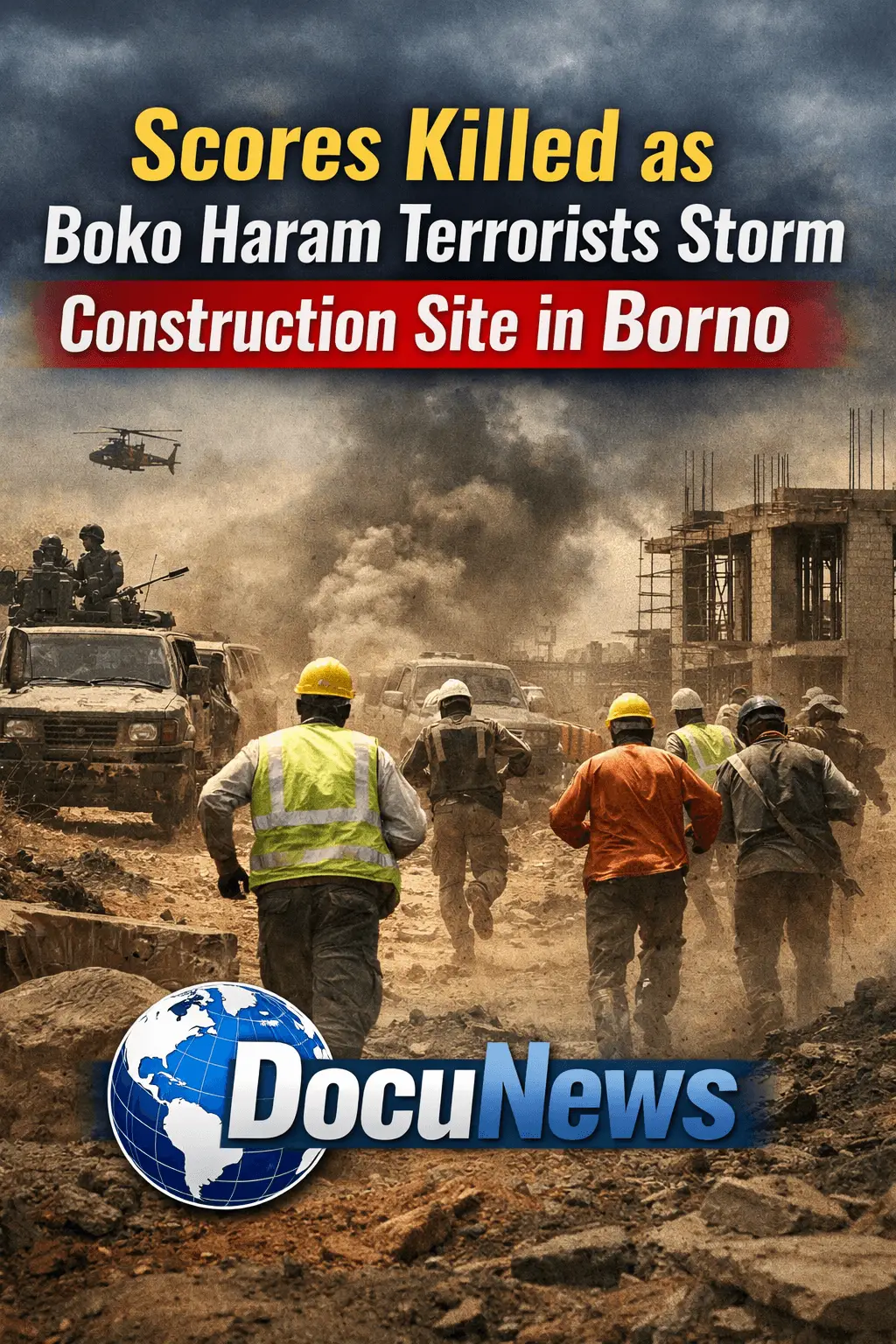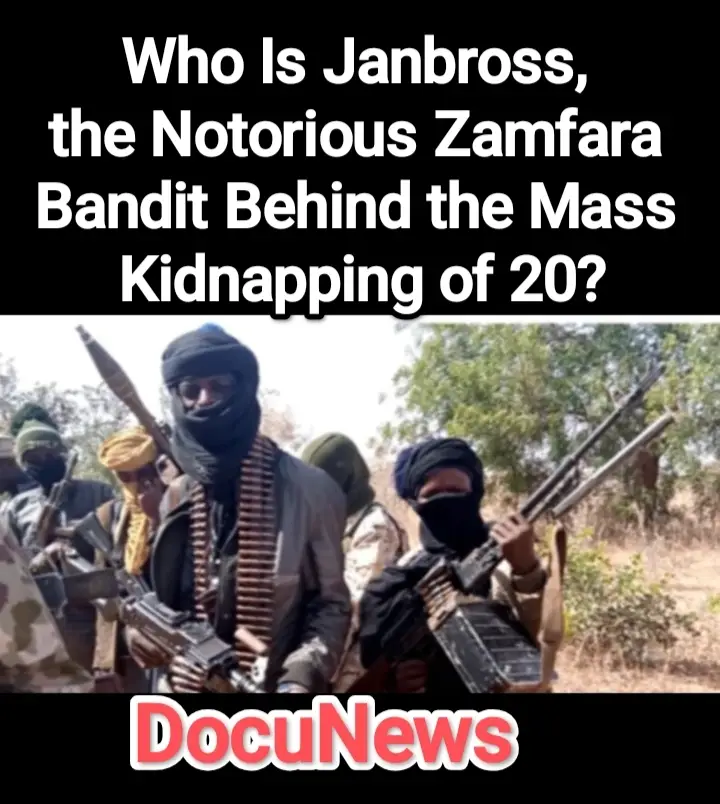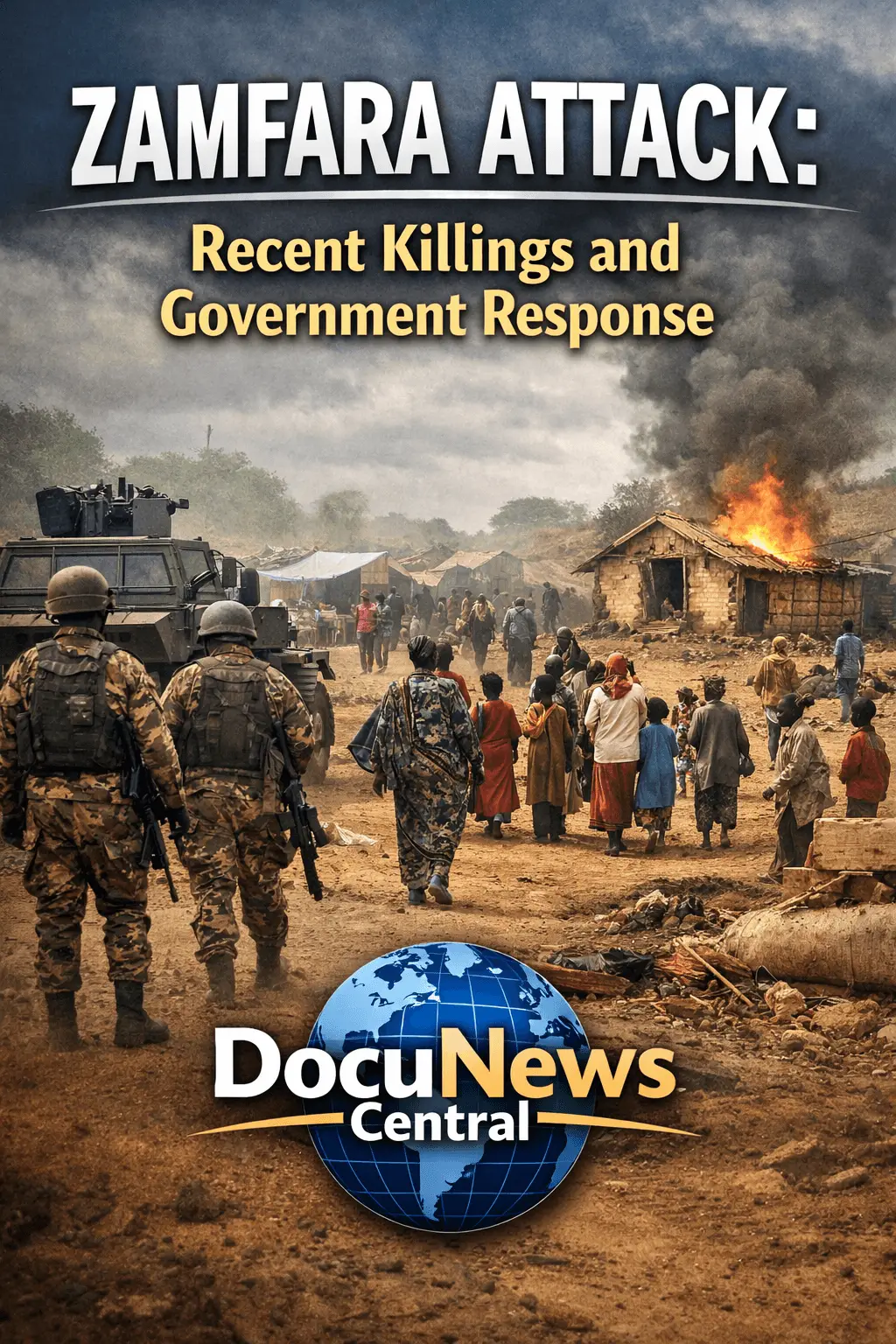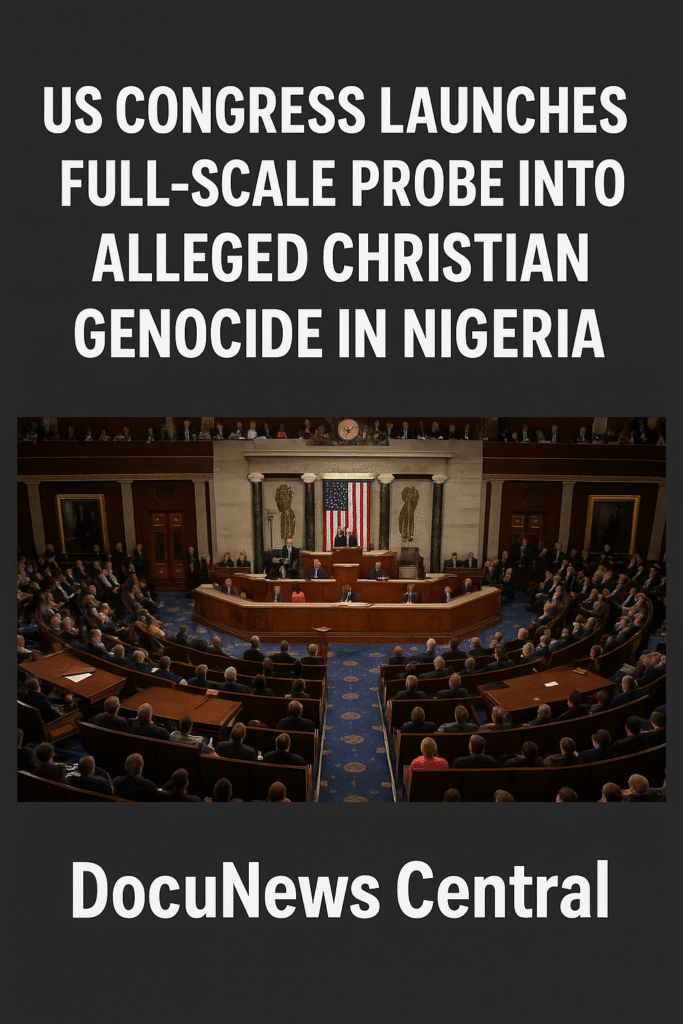
US Congress Launches Full-Scale Probe into Alleged Christian Genocide in Nigeria
The United States Congress has taken a decisive step to investigate the alleged Christian genocide in Nigeria, a development that has sent shockwaves across the international community. On Thursday, November 20, 2025, the House Subcommittee on Africa will hold an open hearing to examine the implications of President Donald Trump’s recent redesignation of Nigeria as a Country of Particular Concern (CPC).
This hearing underscores the growing alarm over escalating violence in Nigeria, particularly targeting Christian communities. The probe will explore the extent of the killings, the role of state institutions, and the broader implications for U.S.-Nigeria relations.
What Led to the Probe?
President Donald Trump’s recent decision to label Nigeria as a Country of Particular Concern has become a pivotal point for U.S. lawmakers. This designation is applied to nations with egregious records of religious freedom violations, signaling heightened scrutiny and potential sanctions or policy measures.
Nigeria, Africa’s most populous nation, has witnessed a surge in violence against religious communities in recent years. Reports indicate that Christian populations in certain states have been disproportionately affected, with mass killings, church attacks, and abductions becoming increasingly common.
The U.S. House Subcommittee on Africa’s decision to hold an open hearing reflects a commitment to transparency. Lawmakers aim to gather firsthand accounts, expert testimonies, and intelligence reports to understand the full scope of the crisis.
Understanding the Country of Particular Concern (CPC) Designation
A CPC designation is not merely symbolic. It identifies countries that violate religious freedoms “systematically, persistently, and egregiously.” Once designated, the U.S. government can consider sanctions, restrictions on foreign aid, or diplomatic actions to address the violations.
This designation has historically been applied to nations with serious human rights violations. The U.S. Congress, in turn, uses the designation as a platform to investigate and pressure governments into protecting religious minorities.
For Nigeria, this comes at a particularly critical time. Rising tensions between communities, coupled with the failure of security agencies to contain attacks, have created a climate of fear among vulnerable populations.
The Current Situation in Nigeria
Nigeria is grappling with a complex security crisis. Banditry, kidnappings, and militant activities have plagued several regions, particularly in the North and Middle Belt. Christian communities have increasingly borne the brunt of these attacks, often resulting in mass casualties and displacements.
Reports from local and international human rights organizations suggest that the violence has escalated to a level that may qualify as genocide. While official statistics remain contested, the human toll is undeniable: villages burned, churches destroyed, and hundreds of families displaced.
Despite efforts by Nigerian authorities to tackle insecurity, critics argue that the response has been slow and ineffective, further highlighting the need for international oversight.
What to Expect from the Congressional Hearing
The upcoming hearing on November 20 will bring together lawmakers, human rights experts, and Nigerian diaspora representatives. Key areas of discussion are expected to include:
- Verification of Alleged Killings – Establishing the scale of violence against Christian communities.
- Role of Nigerian Authorities – Examining government response and accountability mechanisms.
- Impact of CPC Designation – Evaluating potential diplomatic and economic repercussions.
- Recommendations for U.S. Policy – Determining measures to protect religious freedom and support victims.
The hearing will also provide an opportunity for Nigerians in the diaspora to voice their concerns, amplifying the call for justice and international intervention.
International Reactions
The news of the U.S. probe has reverberated globally. Human rights organizations, including Amnesty International and Open Doors, have expressed support for U.S. intervention. They emphasize that international attention is crucial for the protection of vulnerable populations and the prevention of further atrocities.
On the other hand, Nigerian government officials have urged caution, highlighting that the situation is complex and rooted in longstanding socio-economic and political issues. They argue that external labeling should not oversimplify Nigeria’s challenges, but the international community remains watchful and ready to act if necessary.
Historical Context
Nigeria’s history is marred by religious and ethnic conflicts, from the Biafra war in the late 1960s to ongoing tensions in the Middle Belt. Historically, these clashes have resulted in significant loss of life and displacement, creating a cycle of insecurity that persists to this day.
The current crisis, however, is distinct due to its apparent targeting of specific religious communities, which has prompted calls for classification as genocide. Experts warn that failure to address the issue now may exacerbate tensions and destabilize the region further.
Implications for U.S.-Nigeria Relations
The probe is poised to influence bilateral relations between the U.S. and Nigeria. If Congress finds substantial evidence supporting allegations of genocide, the U.S. may implement sanctions or adjust foreign aid policies. This could affect trade, security cooperation, and diplomatic engagement.
Moreover, Nigeria’s CPC designation sends a strong message to other countries about the importance of protecting religious freedom. It reinforces the principle that violations of human rights will attract global scrutiny and consequences.
What Nigerians Are Saying
Public reaction in Nigeria has been mixed. Some citizens welcome international attention, hoping it will pressure authorities to act decisively against perpetrators. Others view the probe as interference, emphasizing Nigeria’s sovereignty and the complexity of the security situation.
Community leaders, particularly from affected areas, are calling for urgent interventions, including enhanced protection for vulnerable populations and accountability for security lapses. They stress that without tangible action, the cycle of violence may continue unchecked.
Looking Ahead
As November 20 approaches, attention will turn to the outcomes of the Congressional hearing. Lawmakers will seek clarity on the situation, and their findings may shape U.S. foreign policy toward Nigeria for years to come.
For Nigeria, the probe represents both a challenge and an opportunity. While it highlights severe shortcomings in security and governance, it also offers a chance to address longstanding grievances, implement reforms, and protect religious minorities. for more news on insecurity in Nigeria read Over 7,000 Nigerians Still in Terrorists’ Captivity Across Seven States atdocunewscentral.com
The international community will be watching closely, hoping that action, not just words, will follow the hearing.
Related Articles
- Plateau Governor Confirms Genocide in Nigeria
- US Redesignates Nigeria as Country of Particular Concern
- Banditry and Religious Violence in Nigeria: A Growing Crisis







